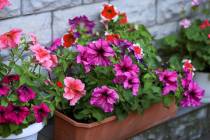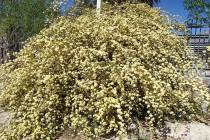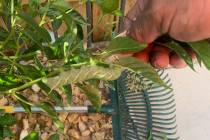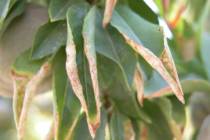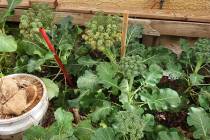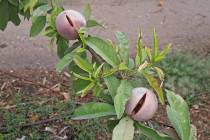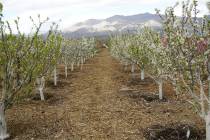Looking to 2015 and climbing the ladder of ecoawareness
Reflection is common at the end of the year. Reviewing the Green Living columns for 2014 led me to take stock of almost nine years of consecutive biweekly publication. This is column number 232. Their purpose is to plant seeds of awareness that will grow into positive change in our community. The fruit of those seeds will nourish future generations. It is part of my green dream.
Writing is a learning process for me. I am grateful to many who continue to illuminate with their knowledge and wisdom. One such person is Rudy Sovinee, founder of the One World, Our World School Program for teaching children about conflict resolution and leadership skills. His insights into our planetary predicament are thoroughly researched and well-articulated. His program and writings are at www.1wow.org. Teachers are encouraged to look closely at his program, generously offered for free. The videos of his school trainings are wonderful.
Through Rudy, I came across the writings of Paul Chefurka, who has articulated some interesting ideas about people’s awareness of our ecology and our world. He offers it freely in the public domain.
So, with gratitude, I am sharing it here for those who may not be able to follow the link to his site at www.paulchefurka.ca.
Climbing the Ladder of Awareness
When it comes to our understanding of the unfolding global crisis, each of us seems to fit somewhere along a continuum of awareness that can be divided into five stages.
■ Dead asleep. At this stage there seem to be no fundamental problems, just some shortcomings in human organization, behavior and morality that can be fixed with the proper attention to rule-making. People at this stage tend to live their lives happily, with occasional outbursts of annoyance around election times or the quarterly corporate earnings seasons.
■ Awareness of one fundamental problem. Whether it’s climate change, overpopulation, peak oil, chemical pollution, oceanic overfishing, biodiversity loss, corporatism, economic instability or sociopolitical injustice, one problem seems to engage the attention completely. People at this stage tend to become ardent activists for their chosen cause. They tend to be vocal about their personal issue, and blind to any others.
■ Awareness of many problems. As people let in more evidence from different domains, the awareness of complexity begins to grow. At this point a person worries about the prioritization of problems in terms of their immediacy and degree of impact. People at this stage may become reluctant to acknowledge new problems - for example, someone who is committed to fighting for social justice and against climate change may not recognize the problem of resource depletion. They may feel that the problem space is already complex enough, and the addition of any new concerns will only dilute the effort that needs to be focused on solving the “highest priority” problem.
■ Awareness of the interconnections between the many problems. The realization that a solution in one domain may worsen a problem in another marks the beginning of large-scale system-level thinking. It also marks the transition from thinking of the situation in terms of a set of problems to thinking of it in terms of a predicament. At this point the possibility that there may not be a solution begins to raise its head.
People who arrive at this stage tend to withdraw into tight circles of like-minded individuals to trade insights and deepen their understanding of what’s going on. These circles are necessarily small, both because personal dialogue is essential for this depth of exploration and because there just aren’t many people who have arrived at this level of understanding.
■ Awareness that the predicament encompasses all aspects of life. This includes everything we do, how we do it, our relationships with each other, as well as our treatment of the rest of the biosphere and the physical planet. With this realization, the floodgates open and no problem is exempt from consideration or acceptance. The very concept of a “solution” is seen through, and cast aside as a waste of effort.
I plan to make 2015 a year of increasing awareness, sprinkled with lots of love and respect for life. May it be so for you, too.
Steve Rypka is a green living consultant and president of GreenDream Enterprises, a company committed to helping people live lighter on the planet. For more information and links to additional resources relating to this column, or to reach Rypka, visit www.greendream.biz.








